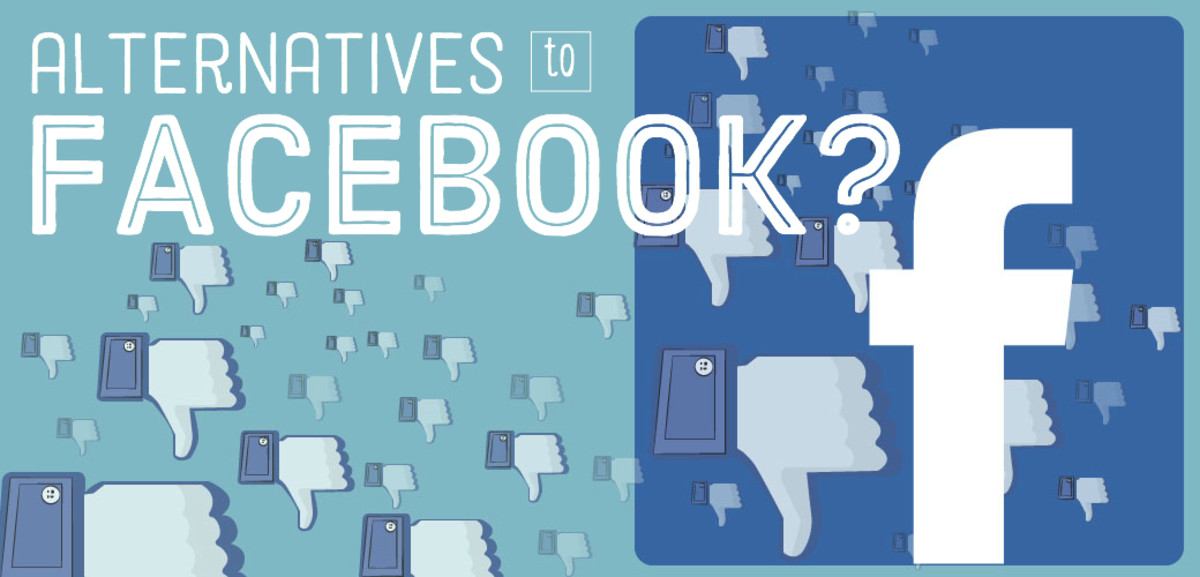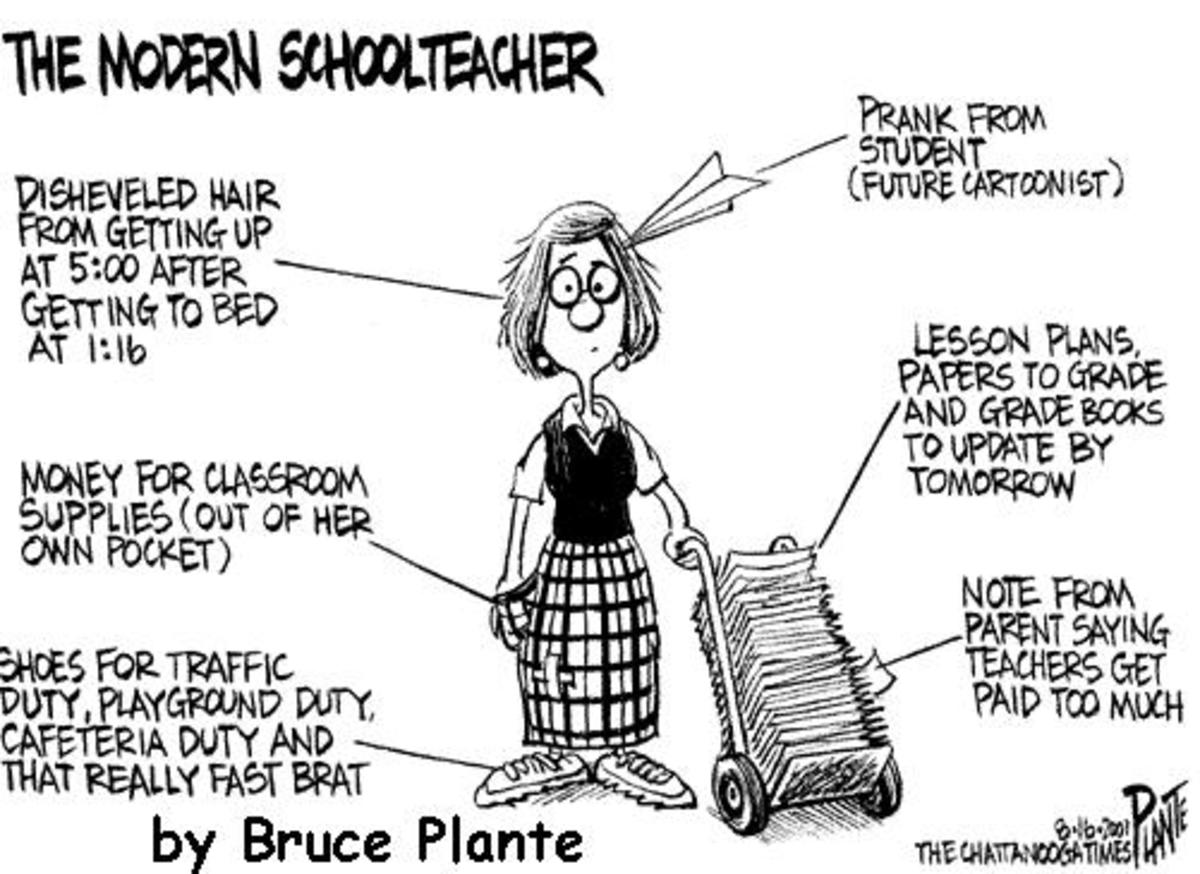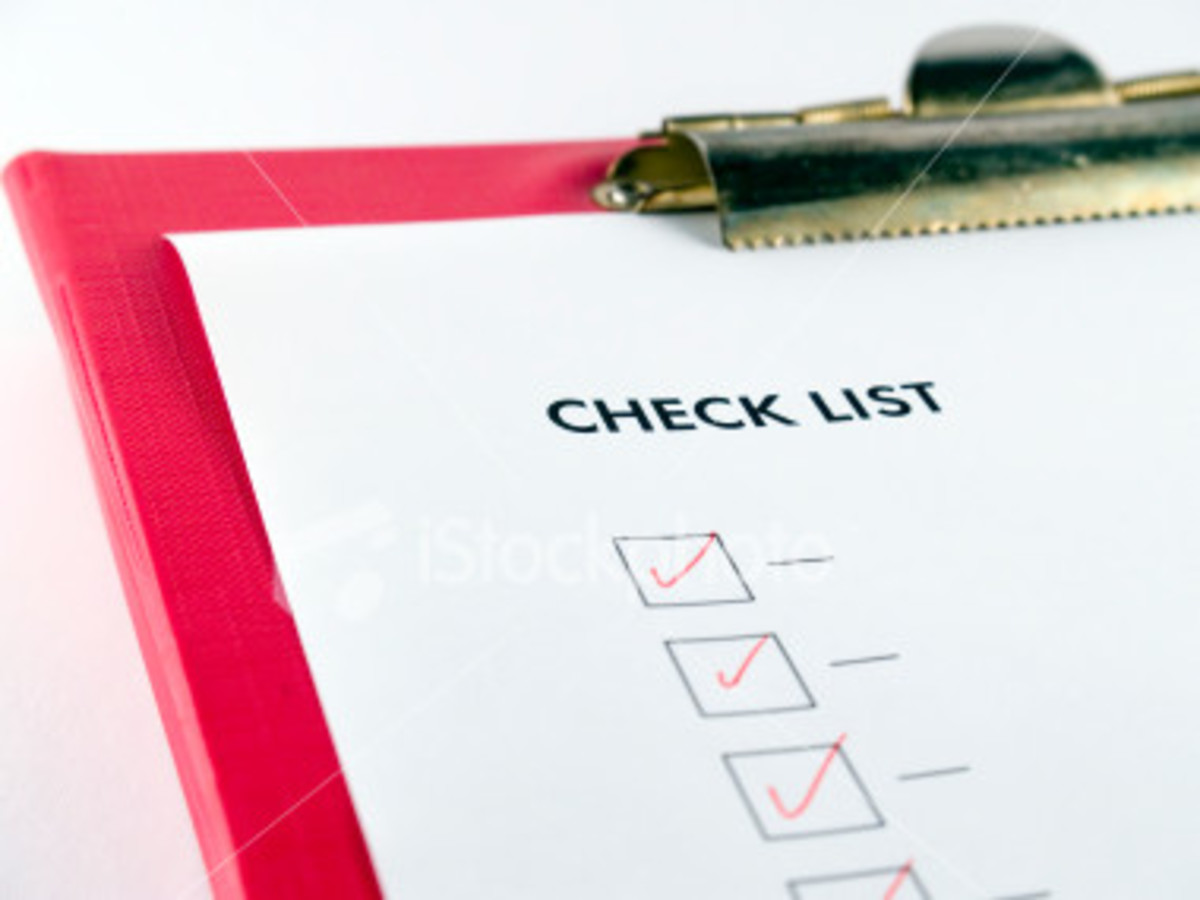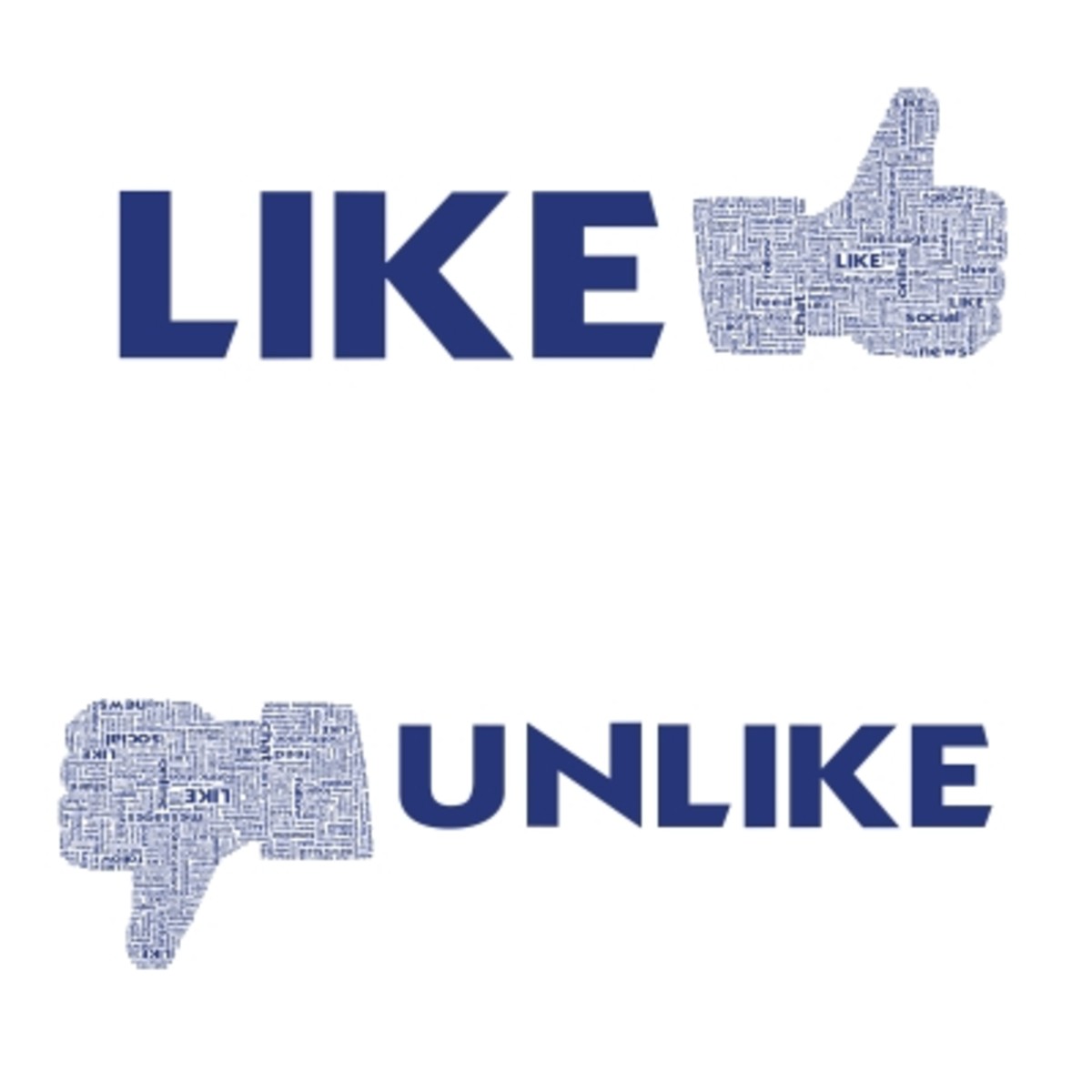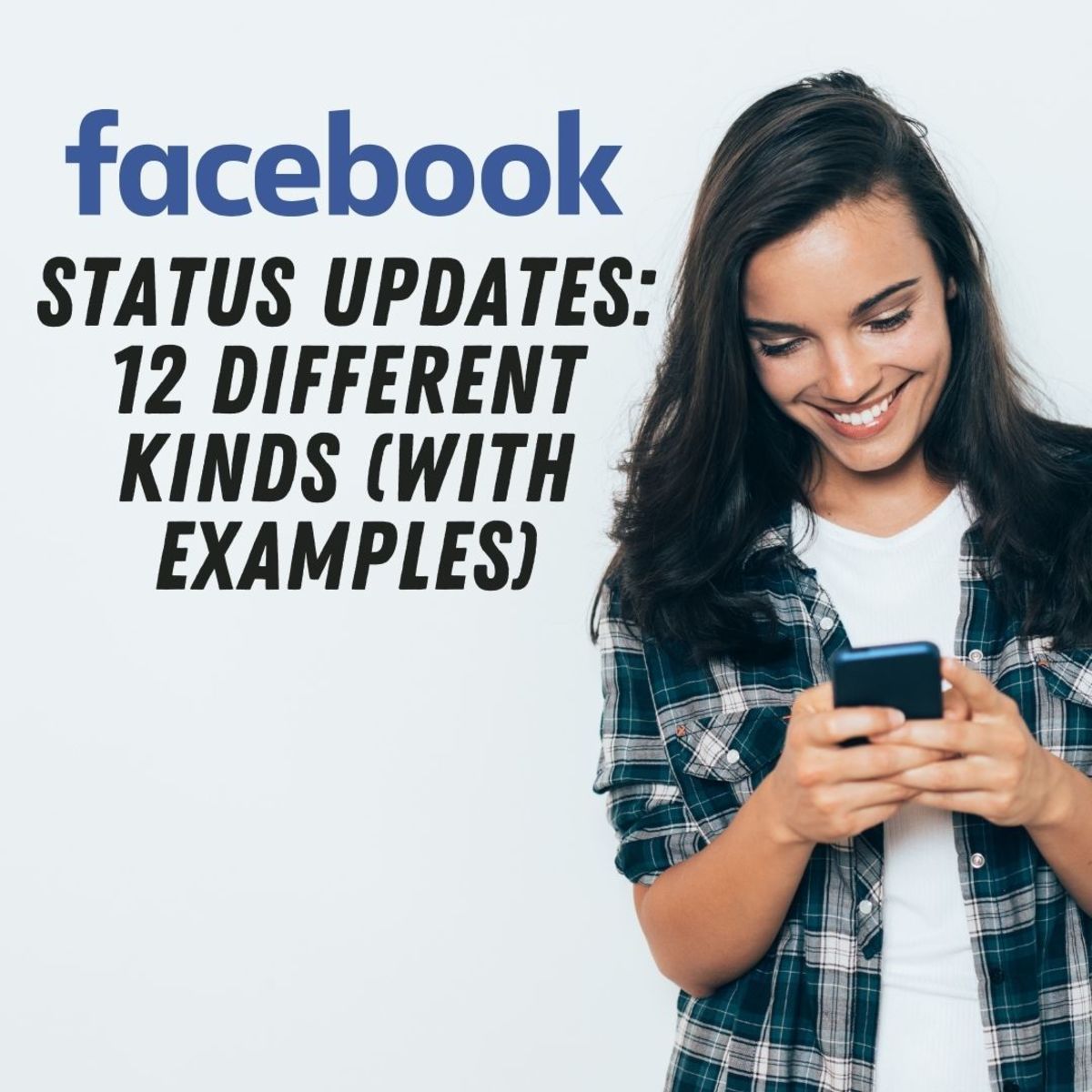- HubPages»
- Technology»
- Internet & the Web»
- Social Networking
Teachers and Facebook: Know the Risks of Friending Students
Inside and outside the classroom
Young people aren’t the only ones at risk because of their Facebook content. Teachers have been “busted” for their profiles as much as students, and a particularly hot topic is teachers’ use of social-networking sites and how much of their online profiles are protected by free speech.
While some teachers see the benefits of using social-networking sites to open dialogue between teachers and students (in a forum that may be more comfortable for the shy students who rarely speak in class), other educators worry about the blurring of boundaries between teachers’ professional and personal lives. Instances of questionable profile content—“candid photos, racy or suggestive song lyrics, and references to sex or to alcohol or drug use”—have gotten teachers suspended, fired, or blocked from being hired (Carter et al. 683).
In one instance, John Bush, a middle-school physical education teacher in St. Augustine, Florida, was fired over what he’d posted on his MySpace page—an inappropriate photo and comments. While the district superintendent acknowledged that the content wasn’t pornographic, “the profile contained things that students and parents should not know about a teacher” (Carter et al. 683). This last point is a key fact—it seems that it doesn’t matter so much what the content is, just that students may have access to it.
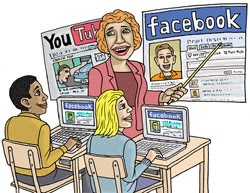

To friend or not to friend
As some teachers have discovered, friending their students can be risky for both parties. It takes just one child repeating some off-color remark on his friend’s (or homeroom teacher’s) Facebook page to land that teacher in hot water. On the flip side, some teachers have unfortunately used social-networking sites to engage in lewd or otherwise inappropriate conversations with their charges (Carter et al. 683).
Even teachers who have taken every precaution to block their online profiles from students and parents have run into trouble. In Ashley Payne’s case, it was some photos of her holding beer and wine glasses on her European vacation and the use of the word “bitch” in a comment that led to her suspension. The high-school teacher from Barrow County in Georgia was summoned to the assistant principal’s office because of an e-mail from an anonymous sender complaining that his or her child had viewed offensive content on Payne’s Facebook profile. The unidentified student was allegedly Payne’s Facebook friend. The offensive content included some ten photos of Payne in European pubs and beer gardens and her note that she was off to play “Crazy Bitch Bingo,” a popular game hosted by an Atlanta restaurant. The school authorities pressured her to resign, Payne claims, even though Barrow officials never determined the legitimacy of the anonymous e-mail.
Payne’s Facebook account was set to the highest privacy level, accessible to only her approved friends, not to any students. Maureen Downey, an Atlanta-Journal Constitution columnist, spoke with Barrow officials and learned that the critical problem wasn’t Payne’s pictures or expletive. Rather, “it was the ‘fact’ that she had given a student inappropriate access to her personal Facebook account. A ‘fact’ for which there is no evidence whatsoever.” Downey made the point that the charges were groundless, because the e-mail could have been sent by anyone: “an old boyfriend, a jealous teacher, a nutcase.” The fact that there may have never been an impressionable student viewing Payne’s profile apparently made no difference to the school board; she is currently contesting their decision (Downey).
What do you think?
Should teachers friend their students on Facebook?
Freedom of speech?
Why the extra scrutiny of teachers’ use of social-networking sites? Shouldn’t teachers be free to enjoy a life outside the classroom without it jeopardizing their careers? Standards for professional conduct have always been high for educators. As late as the early 20th century, teachers followed strict rules that went beyond what they taught in the classroom: “you are not to keep company with men” and “you must under no circumstances dye your hair” (Carter et al. 683).
Even today, people expect teachers to exemplify high moral behavior. To do otherwise is to risk “discredit[ing] the teaching profession,” as Arizona warned in its state certification procedures (Carter et al. 684). While teachers in previous centuries worried about causing a scandal because of nosy neighbors’ eyes, today it’s even harder for them to maintain their privacy. Students and parents can easily Google them or look up their Facebook profile. The landscape of online, omnipresent social media is still largely uncharted and unfamiliar to many people.
Even the laws concerning teachers’ freedom of speech give only hazy guidelines, because some statutes have not caught up with modern technology. For instance, what happens if a teacher uses a social-networking site to complain about or protest a school policy? Two Supreme Court cases, Pickering v. Board of Education and Connick v. Myers, are used to balance a teacher’s right to speak freely about subjects of public importance against the school’s need to run effectively.
Under what is known as the Pickering/Connick test, “a teacher could be disciplined for speaking out publicly against a school administrator only if that speech interfered with the efficient operations of the school” (Carter et al. 684). However, there is still not a clear system of handling discipline for “any off-duty free expression of a teacher that is not of public concern” (Carter et al. 684). As of yet, there is no legal litmus test for determining what teachers are allowed to do or say on Facebook, Twitter, and Youtube that won’t jeopardize their jobs.
Don't blur the boundaries
Regardless of whether it is fair, professional conduct for teachers extends outside the classroom. While the legal system and school boards may still be wrestling with the issue of free speech and teachers’ inappropriate web content, teachers need to keep a clear boundary between their professional and personal lives. High school teachers who friend students on Facebook are opening themselves up to scrutiny and recriminations if they post anything inappropriate. People may have different standards of what is appropriate, but the key fact is that there are certain things that students and parents should not know about the teacher.
Readers, what do you think? Should teachers expect the same freedoms of speech that everyone is supposed to enjoy? Do those expectations change when teachers post information on a public online forum like Facebook, Twitter, or Youtube? Is it right for teachers to bear extra scrutiny, or is that a natural consequence for anyone who works with children? Please share your opinions in the comments section.
Works Cited
Carter, Heather L., Teresa S. Foulger, and Ann Dutton Ewbank. “Have You Googled Your Teacher Lately? Teachers’ Use of Social Networking Sites.” The Phi Delta Kappan 89.9 May 2008: 681–685. JSTOR. Web. 11 Jan. 2010.
Downey, Maureen. “Learning Curve: A social media muddle.” Atlanta Journal Constitution 16 Nov. 2009. AJC.com. Web. 1 Apr. 2010.
Other Facebook topics
- How Intimate are Facebook Relationships?
How well do you know your friends based on their Facebook profiles? If you spend all your time keeping up with hundreds of friends on social-networking sites, will your real-life, face-to-face friendships suffer as a result? - Children on Facebook: The Dangers of Cyberbullying
Cyberbullying is a serious problem affecting teens across the country and gaining attention from parents and educators. With proper guidance and online monitoring, adults can safeguard their kids against online predators and bullies. - The Facebook News Feed Controversy of 2006
In 2006, the launch of the News Feed feature on Facebook led to a widespread panic and protest over a perceived loss of privacy control. Users of social-networking sites need to feel in control of how the information they post is shared with others. - Facebook Religion: What do users say about their beliefs?
How much do Facebook users share about their religious beliefs and why? Facebookers discuss their reasons for disclosing personal information on their profiles. - The Nature of Facebook Friendships
What is the difference between real-life, face-to-face friendships and Facebook friendships? Discover how social media has affected the way we communicate and relate to our friends.

